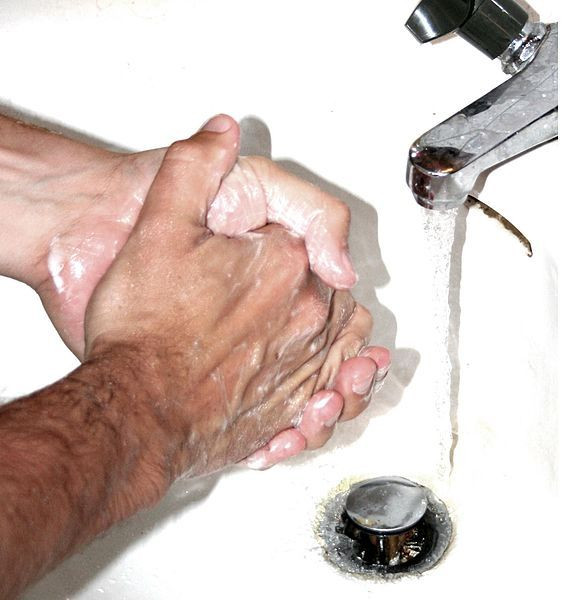The ABCs of OCD: Obsessive-Compulsive Disorder From The Inside Out [VIDEO]

Possibly the most common image of Obsessive-Compulsive Disorder (OCD) is a person repeatedly washing his or her hands in order to get rid of some imaginary germs or contamination. Yet the condition, which is described by the American Psychiatric Association as a type of anxiety disorder, is more complicated and compelling than those who have never experienced the disorder might imagine. On the surface, this mental illness appears to be easily explained ... yet it is anything but.
People suffering with OCD have recurring, unwanted thoughts, memories, or sensations (obsessions) that drive them to perform repetitive behaviors (compulsions). Afflicting some 2.2 million Americans, OCD is equally common in men and women and generally begins in childhood, adolescence, or early adulthood. Although many people double check turning off the stove before leaving the house, people with OCD may check things repeatedly and perform certain rituals over and over — so much, it interferes with their daily life. In fact, these obsessions and compulsions are uncontrollable.
“In hindsight a lot of the worries [I’ve had] are common OCD worries, like checking the news in case there was a fire in a building I had been last out of, thinking I'd run someone over and going back to check, ringing office friends to check I'd locked the door, ringing neighbours to check I'd locked the house, feeling overly responsible for getting others into trouble with something I'd said, etc.,” wrote Franklin 12 in the OCD-UK chat room.
People with OCD describe their obsessions as their mind getting stuck on a certain thought or image and replaying it again and again, accompanied by intense anxiety. Many people with the condition describe false memories, including the possibility of harming another person. A mother, for instance, may worry that she inappropriately touched her baby. “This morning when changing my daughters bum I had this overwhelming feeling that I wanted to touch her,” wrote findingithard. “I love her so much so why would I do that?”
“I don't want to be immoral, the idea of it makes me sick,” wrote Purplepiper7 of her own guilty though false obsessions. “I could do something horrible or terrorize others or cause mass destruction.”
Researchers believe several parts of the brain are involved in fear and anxiety. Neuroimaging studies have documented that patients with OCD have significantly more gray matter and less white matter than people without the condition. OCD also runs in families with identical twins more likely to both have OCD when compared to fraternal twins — 80 to 87 percent compared to 47 to 50 percent. This suggests a genetic component may be involved, even though researchers do not have any precise answers for the origins. Treatments do help, though.
A type of cognitive-behavioral therapy known as exposure and response prevention is the gold standard for treatment. During treatment sessions with a therapist, patients are exposed to the situations that create anxiety; gradually, the exposure time is lengthened as they learn to decrease and then stop the rituals they believe they need to lessen anxiety. Through exposure, patients discover their anxiety will naturally lessen without the ritualistic behavior. Sufferers commonly find relief in medications within the class of antidepressants known as selective serotonin reuptake inhibitors (SSRIs). Commonly, doctors prescribe fluvoxamine (Luvox) paroxetine (Paxil), sertraline (Zoloft), citalopram (Celexa), and esitalopram (Lexapro) for OCD.
According to the International OCD Foundation, on average, about 70 percent of patients with OCD will benefit from either medicine or cognitive behavior therapy (CBT), with patients showing a 40 to 60 percent reduction in symptoms when taking medicine regularly. Those able to respond to CBT often report a 60 to 80 percent reduction in symptoms.
“Guilt just hits me out of nowhere, for no reason at all, and I think it means I'm an evil monster,” Nikki wrote. “I start thinking that I've done something to deserve it, or that I will do something to deserve it and I'll cause mass destruction and/or go to hell if I don't compensate for that feeling of guilt.” Lucky for Nikki, her co-sufferers recommend and can attest to the benefits from help they received. “I have the most horrendous and frightening thoughts,” wrote Matt to a fellow OCD sufferer. “I finally shared them with my psychiatrist this week and he didn't even blink… A thought is just a thought and I don't have to believe it.”
For more information, watch this brief video from Dr. Oz:



























